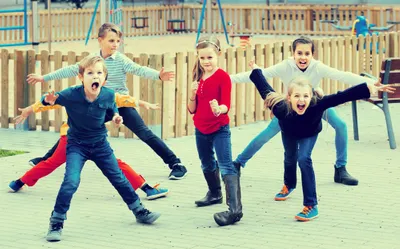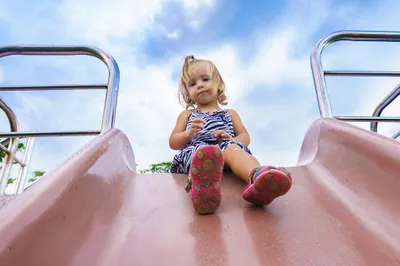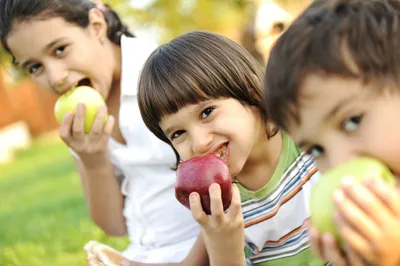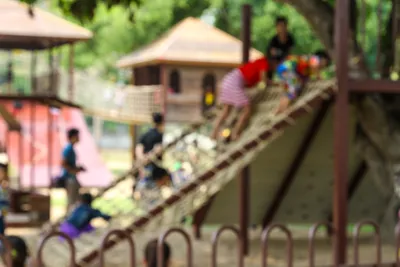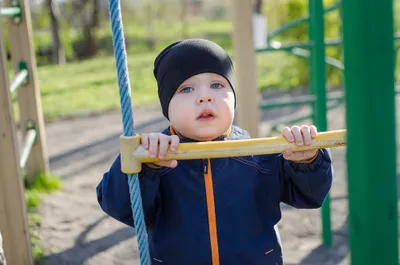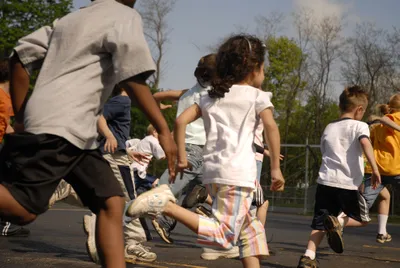The playground—it’s the ultimate space for kids to expend their energy while learning new skills and interacting with other children. However, as a parent, you have to be a bit more involved than glancing up from your phone occasionally from the sidelines.
While the playground is designed for just that—playing—it can be less than fun for your little ones (and you) if you don’t keep some simple tips in mind relating to their safety and how they socialize with others. Here are six tips to win at the playground…
1. Scope Out the Area First
Just like responsible truck drivers do a check of their vehicle before they hit the road, you should do a safety check of the playground before you let junior go for, it especially if it’s a playground that’s in an area that’s not maintained as often.
Safe Kids Worldwide suggests looking at the equipment itself for any obvious malfunctions or rusty bits, as well as uneven surfaces. You can also be aware of any potentially dangerous trash left behind such as broken bottles or cigarette butts.
2. Wear Shoes at All Times
This may seem like an obvious one, but many kids love to run around barefoot for that extra feeling of freedom, which is okay in certain situations. However, the hot sun can quickly make benign surfaces into a hazard that can cause injury.
There’s an article in Gothamist (warning: it has a graphic photo of a child’s burnt feet) that warns not only can your child’s feet be scalded on a hot metal surface like a slide, you could as a parent even end up facing some fines (although it’s obviously more about the child’s safety).
3. Don’t Offer or Accept Food
It can be your parental instinct to want to offer up some goodies to another toddler that has befriended your toddler. After all, it’s tough to watch that little kid see your kid happily munching away while they fuss and pout.
However, the rule (according to Parents.com) is that you should always seek out the child’s parents and ask for permission before you hand them anything to eat. This is because the child, who your son has been friends with for 6-minutes, may have food allergies you don’t know about, it says. Conversely, if someone you don’t know hands your kid a cookie, politely decline and say they’ve had plenty of treats already that day.
4. Slide into Safety
The slide is one of the playground favorites, but it can also become a hazard if you’re not paying attention. For example, many slides spiral downwards, making it near impossible to see if there’s someone at the bottom when your child is ready to slide. This could result in a kid collision that ends in tears.
Speaking of slides (and other playground equipment), teach your kids to land on both feet with their knees slightly bent to absorb the impact, notes KidsHealth.org. Quickly intervene if there’s any rough play at the top of the slide, and teach your little one to be patient and wait their turn, and not push the person in front of them.
5. Be Careful About Climbing
KidsHealth.org also notes that most playground injuries are from climbing equipment, which can be especially challenging for your child. Teach your kids to use both hands and stay well behind anyone climbing in front of them, it suggests.
It also notes that toddlers probably don’t have the upper body strength to use climbing equipment properly, so you shouldn’t let them climb any higher than 5-feet (the limit for school-aged kid is 7-feet). You should pay close attention when they get on a ladder or climbing wall. Teach them a safe way to get down (being aware of anyone climbing up behind them), or be ready to lift them off the equipment if things get a little out of control. Also avoid wet climbing equipment.
6. Assess Bumps and Bruises
When it comes to your kid bonking into something in the playground, whether it’s a piece of equipment of another child, it’s probably a matter of time rather than a matter of if it will happen. With that in mind, you should be ready to check your kid over for any injuries that require medical attention.
If your child hits their head or is jolted, keep an eye on them to make sure they don’t appear dizzy or is slow to respond to you. More serious symptoms that could require a 911 call following a mishap include your child having one pupil larger than the other, extended loss of consciousness, slurred speech and vomiting.

